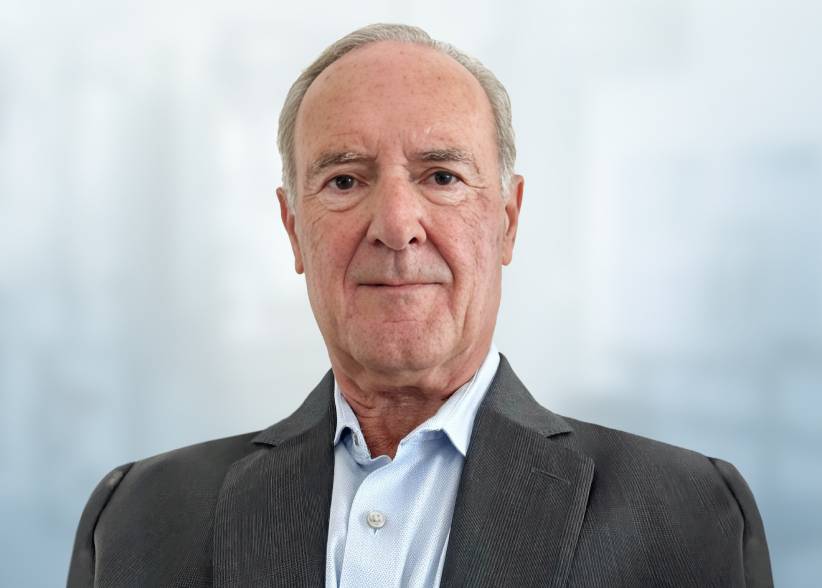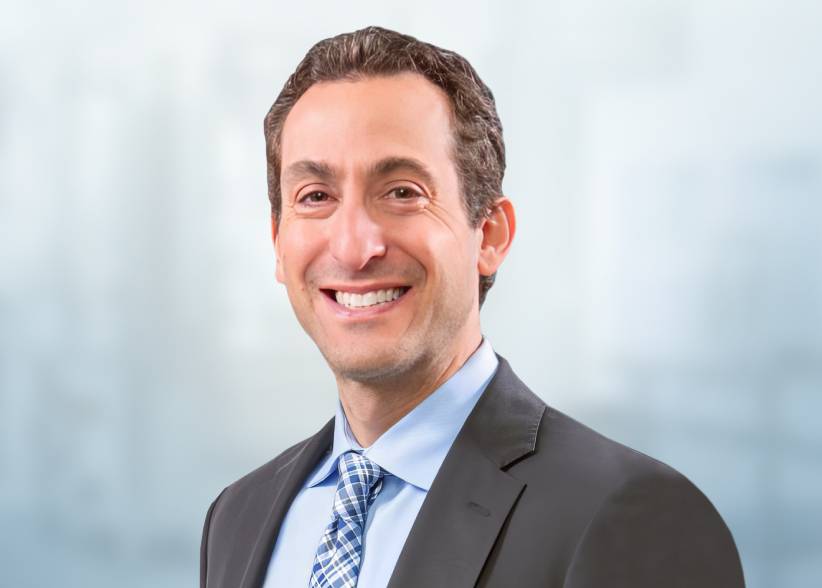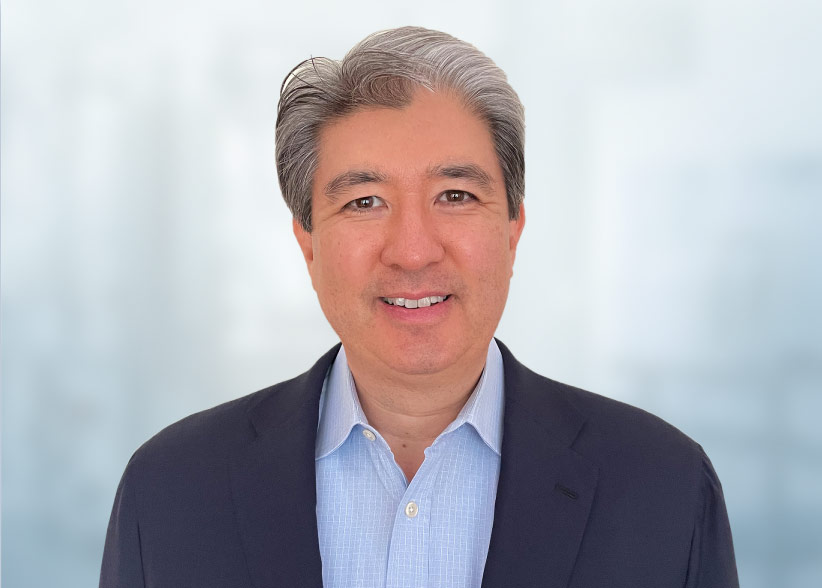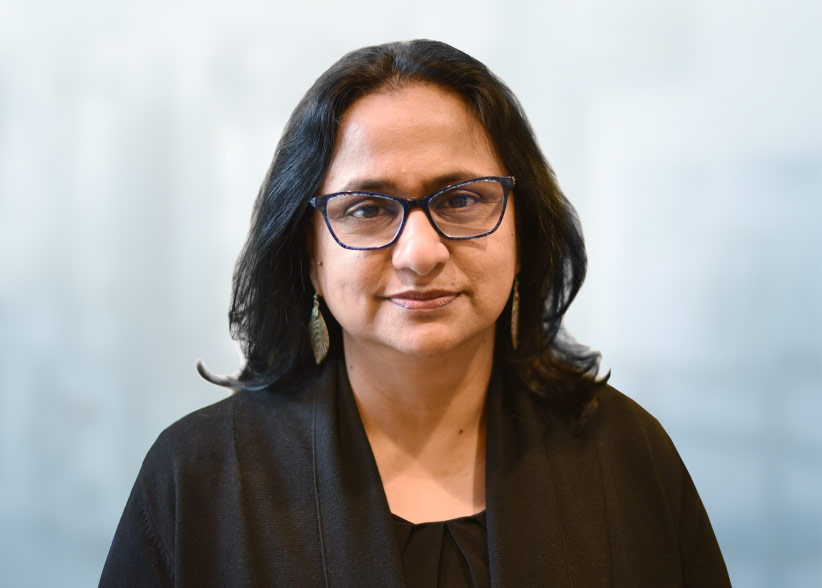Revalesio is a clinical-stage pharmaceutical company committed to creating novel treatments for stroke and other acute and chronic neurological disorders that lack adequate therapeutic options.
Our therapies address cellular imbalances related to mitochondrial dysfunction and have been shown to protect neurons in models of chronic neurological diseases and improve cellular recovery in acute neurological injury. We are partnering with internationally renowned scientists in biomedical research in a concerted effort to improve the lives of millions.









Executive Chairman of the Board
Bert is a former President of Eli Lilly Neuroscience Products and an executive advisor to Revalesio for all therapeutic programs. He has over 40 years of working experience in the global pharmaceutical industry, mainly in general management, product development, and administration. Bert worked for Eli Lilly and Company for nearly three decades in Belgium, The Netherlands, Indonesia, Venezuela, Germany, UK, and USA.

President
Greg is the co-inventor of RNS60. Prior to being named President in 2016, Greg operated as Revalesio’s VP of Operations where he was responsible for guiding RNS60’s regulatory strategy, designing and commissioning the company’s GMP compliant, clinical manufacturing facility and implementing Revalesio’s Quality Management System. Prior to working at Revalesio, Greg designed gas/liquid mixing equipment for Koch Industries. He earned a B.S. in Chemical Engineering from Colorado School of Mines.

Chief Medical Officer
Jordan Dubow is a board certified neurologist with fellowship training in movement disorders and vascular neurology, and began his medical career in academia as a movement disorders and stroke neurologist. Jordan received his medical degree from the Northwestern University Feinberg School of Medicine. He completed his internal medicine internship, neurology residency and fellowship training at University of California Los Angeles, Northwestern University and Weill Cornell Medical College. He has over a dozen years of experience in the pharmaceutical industry where he has served as a full time or acting Chief Medical Officer, leading all clinical and regulatory aspects of drug development resulting in the FDA approval of 16 new drug applications.

Executive Business Advisor
Brian has been an entrepreneur, investment banker, and investor over the last 30 years. After almost 10 years in health care investment banking at Credit Suisse, he co-founded the health care boutique investment bank, Aquilo Partners, and the health care hedge fund, Aquilo Capital. Since 2019, he has focused on helping to build and grow a very select group of companies dedicated to impacting human health. Throughout his career, Brian has completed over 70 strategic (M&A, licensing, JV’s) and financial (private and public) transactions with a broad range of health care companies and investors in the pharmaceutical, biotech, diagnostics, and medtech sectors.

Vice President of Finance
Neil has worked for 30 years in biopharma as a finance director and consultant. This includes over 25 years at Eli Lilly with key leadership roles as a CFO at affiliates in a start-up phase through clinical development. He spent the last 11 years as a financial lead on many significant Eli Lilly business development projects including licensing, equity transactions, and M&A from early research to post launch collaborations. During his time with Eli Lilly he held local assignments in Europe, China and other global locations. Neil has an MBA from the Wharton School and a B.S. in Engineering from Imperial College, London.

Vice President of Translational Medicine
Supurna received her education in Human Physiology and Biomedical Science and has more than 20 years of experience in basic science and translational research as evidenced by her peer reviewed publications and book chapters. She joined Revalesio in 2008 and pioneered Revalesio's research in neurological diseases, resulting in the initiation of three clinical programs (ALS, MS, and Stroke). Prior to joining Revalesio, she worked in several large collaborative multi-institutional projects as a research faculty member at the Feinberg School of Medicine, Northwestern University, IL.

Vice President of Drug Development
Andreas has overseen Revalesio’s clinical program in ALS since 2015. He has worked in drug development in the biotech and pharmaceutical industry since 2001, holding group leader positions at Amgen and Immunex prior to joining Revalesio in 2010. Andreas received his Ph.D. degree in 1993 from the University of Mainz in Germany and was a senior research fellow at the University of Washington in Seattle from 1997 to 2001.

Vice President of Clinical Development Operations
Julie Daves has over 25 years of experience in clinical development operations strategy and execution. Julie holds an MSHS in Clinical Research from The George Washington University School of Medicine & Health Sciences, and a BS in Zoology/Genetics from North Carolina State University. She has led teams to deliver complex, cross-functional clinical studies and programs in over 40 countries. Her leadership roles span both small/mid-size biotechs and CROs, including strong recent leadership experience in Acute Ischemic Stroke and neuromuscular disorders.
Executive Chairman of the Board
Bert is a former President of Eli Lilly Neuroscience Products and an executive advisor to Revalesio for all therapeutic programs. He has over 40 years of working experience in the global pharmaceutical industry, mainly in general management, product development, and administration. Bert worked for Eli Lilly and Company for nearly three decades in Belgium, The Netherlands, Indonesia, Venezuela, Germany, UK, and USA.
Board Director, Science and Technology Committee Chairperson
Prior to his career in industry where he was Vice President of Neuroscience at Eli Lilly (1998-2003), Amgen (2003-2007), Biovail (2007-2010), and Chief Scientific Officer at MedGenesis Therapeutix (2011-2017), Chris was Professor of Neurological Sciences at the University of British Columbia. He presently serves as a consultant or Board member for a number of neuroscience related biotechnology companies. Chris graduated from the University of Victoria in 1966 having earned a B.Sc. in Chemistry and Psychology, and from Princeton University in 1970 with a Ph.D. in Psychopharmacology.
Board Director, Finance Committee Chairperson
Matt Ireland is a Co-CEO and Managing Director for Cumming Capital Management, overseeing the strategic direction of the company with a primary focus on investment strategy. He works closely with investment partners and the executive teams of portfolio companies. Matt serves as an active board member and advisor for multiple companies. He has extensive experience in M&A, strategy, executive management, and tax/estate planning. Prior to working for Cumming Capital, Matt worked for Leucadia National Corporation in M&A, operations, and asset management. Previous to Leucadia, he worked for Deloitte. Matt received his BS and MS in Accountancy with an emphasis in information systems from the Marriott School of Management at Brigham Young University. He also received an MBA from the Kellogg School of Management at Northwestern University.
Board Director
Jim Nordstrom, a former Co-President of Nordstrom, Inc., is Managing Director of Northern Stream Capital, LLC, a private equity investment firm in Bellevue, Washington. As a member of the fourth generation of the Nordstrom family, Jim grew up in the retail business. After graduating from the University of Southern California in 1985, his career at Nordstrom spanned many areas including sales, buying, merchandising, and management. After retiring from the family business in 2000, Jim founded Northern Stream Capital. The private equity firm makes investments in early-stage companies. While the portfolio is diversified, the firm has a particular focus on companies specializing in water technology and nanotechnology.
Board Director, Revalesio Founder
Eric Russell is the Founder of Revalesio Corporation. After acquiring the technology in 2004, Eric led the strategic development of Revalesio as the company’s Chairman and CEO over the next decade. Prior to founding Revalesio, Eric served in a variety of roles at the Frank Russell Company, including President of Frank Russell Investment Management Company from 1996-2000, a member of the Executive Committee and Board of Directors. Assets in the investment business more than tripled under his leadership. Eric is a founding board member of The Russell Family Foundation and currently serves as Board President. He also serves on the Board of Tiedemann Advisors after leading the strategic sale of the Russell family’s multifamily wealth management company, Threshold Group, to Tiedemann Advisors in 2017. He earned a B.A. in Economics and Environmental Studies from Williams College in Massachusetts (1984) and an MBA at the UW Foster School of Business (1990).
Board Director, Governance Committee Chairperson
Jane Taylor received her baccalaureate degree in Nursing from the University of Washington Medical Center in 1979. After working as a Critical Care nurse at Harborview Medical Center, she moved into the field of pharmaceutical research. She founded PC3Inc, a site management organization in 1988 (sold to Americas Doctor in 1996), The Geneva Foundation, a non-profit that supports medical research at over 55 military treatment facilities and federal laboratories worldwide, in 1993, and Northwest Kinetics, Inc, a Phase I pharmacokinetic clinical research unit, in 1995 (sold to Charles River Laboratories in 2006).
Jane has a known track record for successfully leading and growing for-profit and non-profit organizations. She serves on many Boards and is actively involved in her community. Jane has received many accolades for her leadership and her service, including the University of Washington-Tacoma Milgard School of Business 2015 Non-Profit Business Leader of the Year and the Tacoma Business Examiner’s 2015 Woman of Influence award.
Executive Chairman of the Board
Bert is a former President of Eli Lilly Neuroscience Products and an executive advisor to Revalesio for all therapeutic programs. He has over 40 years of working experience in the global pharmaceutical industry, mainly in general management, product development, and administration. Bert worked for Eli Lilly and Company for nearly three decades in Belgium, The Netherlands, Indonesia, Venezuela, Germany, UK, and USA.
Former CMO of Millennium Pharmaceuticals
Dr. Brettman has over 30 years of pharmaceutical leadership experience following more than 10 years experience in academic medicine. He has served as Chief Medical Officer, SVP of Regulatory and Medical Affairs, and held various research roles at numerous companies, including Millennium Pharmaceuticals, Vertex Pharmaceuticals, Schering-Plough, Johnson & Johnson, Alnara Pharmaceuticals, and Leukosite, Inc. Dr. Brettman received dual bachelor’s degrees in biology and Russian literature from the Massachusetts Institute of Technology and his M.D. from the Baylor College of Medicine.
Former VP of Neuroscience for Amgen and Lilly
Prior to his career in industry where he was Vice President of Neuroscience at Eli Lilly (1998-2003), Amgen (2003-2007), Biovail (2007-2010), and Chief Scientific Officer at MedGenesis Therapeutix (2011-2017), Chris was Professor of Neurological Sciences at the University of British Columbia. He presently serves as a consultant or Board member for a number of neuroscience related biotechnology companies. Chris graduated from the University of Victoria in 1966 having earned a B.Sc. in Chemistry and Psychology, and from Princeton University in 1970 with a Ph.D. in Psychopharmacology.
Executive Business Advisor
Brian has been an entrepreneur, investment banker, and investor over the last 30 years. After almost 10 years in health care investment banking at Credit Suisse, he co-founded the health care boutique investment bank, Aquilo Partners, and the health care hedge fund, Aquilo Capital. Since 2019, he has focused on helping to build and grow a very select group of companies dedicated to impacting human health. Throughout his career, Brian has completed over 70 strategic (M&A, licensing, JV’s) and financial (private and public) transactions with a broad range of health care companies and investors in the pharmaceutical, biotech, diagnostics, and medtech sectors.
Founding Partner Calibrium
George Rehm was a founding partner of Aeris Capital AG, now Calibrium. Prior to joining Aeris he has over 20 years of experience as a lawyer and executive in international licensing, technology transfer and investment and privatization transactions in the US, Europe and Asia. Currently he serves as a director of AI Therapeutics Inc., Artera AI, MyOwnMed (now Respond Health), Axenic Health Solutions, and Chromatic Inc. He received his BSFS from Georgetown University, and a JD from the University of California, Hastings College of Law in parallel to graduate studies in City Planning at the College of Environmental Design, UC Berkeley.
Former CEO of Biogen
Michel Vounatsos served as CEO and member of the Board of Directors of Biogen, Inc. until November 2022. Before joining Biogen, he spent two decades at Merck & Co. in various senior leadership positions, including President of MSD China, President, Primary Care & Merck Customer Centricity, and commercial leadership positions throughout Europe. An experienced Board member, he currently sits on the Boards of PerkinElmer, Inc., a global scientific technology and life science research company, and Zai Lab Limited, a biopharma company based in China. Vounatsos earned his MBA from HEC School of Management in Paris, France, and his C.S.C.T. certificate in Medicine from Université Victor Segalen, Bordeaux II, France.
Want to know more about our company, technology, products or potential partnership opportunities?
